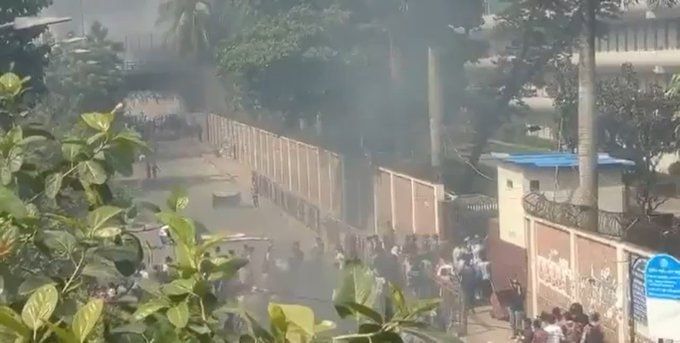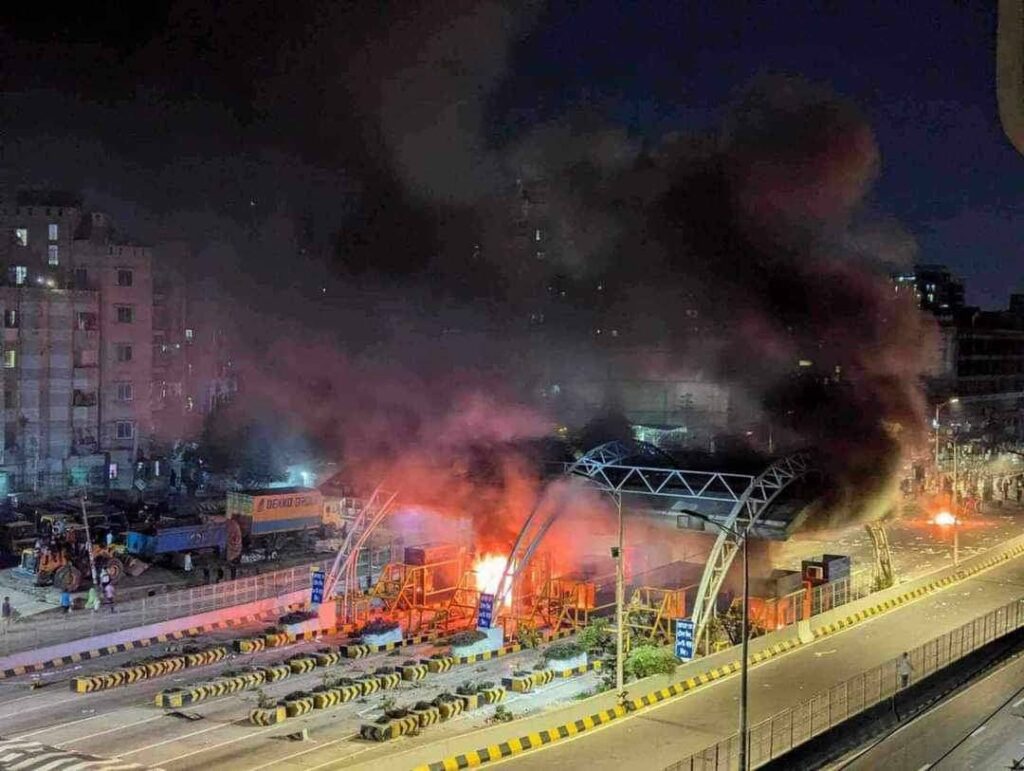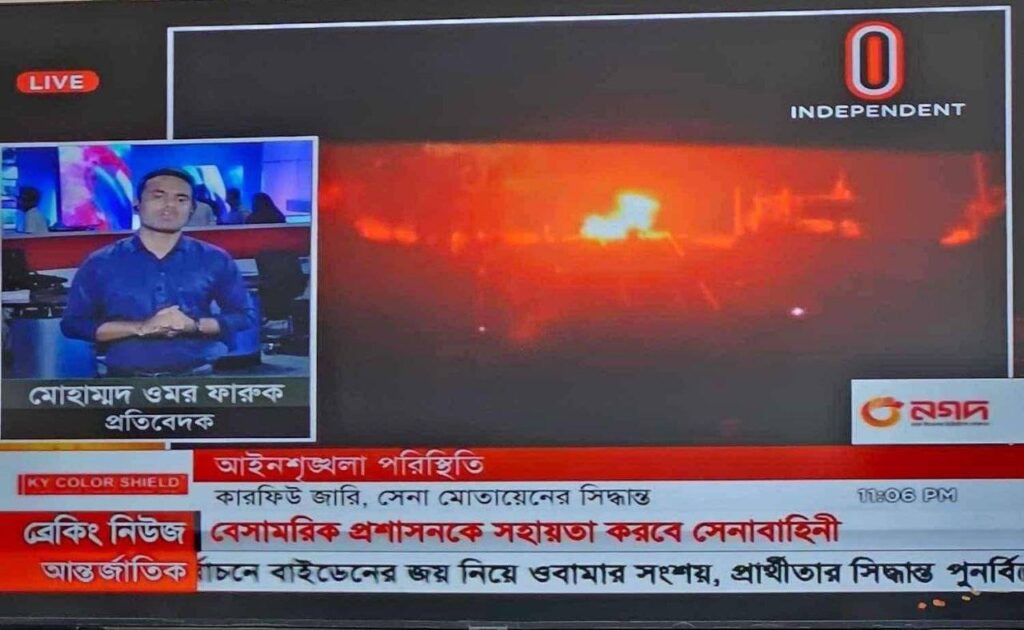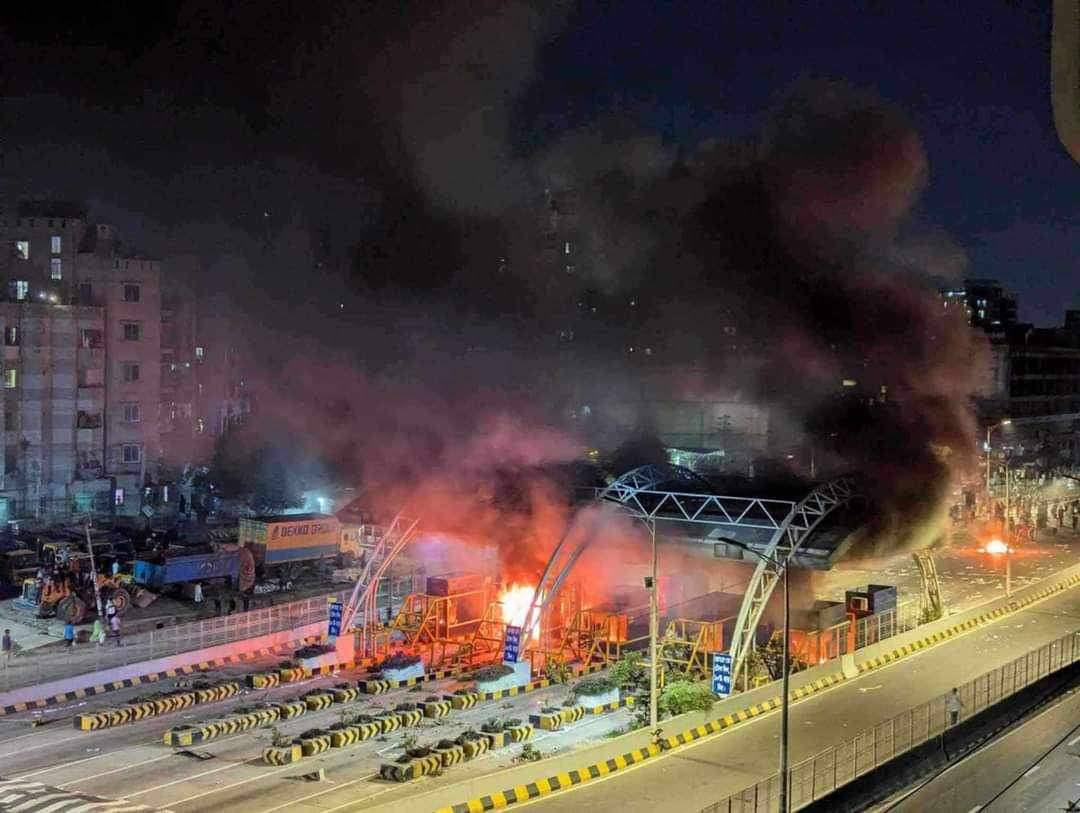Protests and Government Response:
Recent scenes from protests in Bangladesh depict authorities firing at unarmed demonstrators. The protests were sparked by the reinstatement of a controversial 30% quota in government jobs for freedom fighters and their descendants by the Bangladesh High Court on June 5. This decision overturned a 2018 repeal following widespread protests by students and educators.
Impact and University Shutdown:
The protests intensified nationwide, resulting in six deaths and over 400 injuries. In response, Bangladesh announced the indefinite closure of all public and private universities starting from July 17. This measure was taken amidst escalating tensions and violent clashes between protesters and law enforcement.
Political Context and Prime Minister’s Response:
Prime Minister Sheikh Hasina exacerbated tensions by referring to protesters as ‘razakars’, a derogatory term with historical connotations meaning ‘traitors’. This term has deep roots in Bangladesh’s war for independence and added a contentious dimension to the protests.
Controversial Quota System:
Government jobs in Bangladesh are highly sought-after due to their stability and financial rewards. Prior to 2018, 56% of these positions were reserved across various categories, including 30% for freedom fighters’ families, 10% for women, 10% for underdeveloped district residents, 5% for tribal communities, and 1% for persons with disabilities. This left only 44% of jobs available for open competition.
Public Sentiment and Quota System Challenges:
The freedom fighters’ quota was especially controversial, with accusations that it favored supporters of the ruling Awami League party, which led Bangladesh’s liberation struggle. Criticisms included separate exams for quota candidates, varying age limits for different categories, and vacancies in quota seats despite eligible merit-based candidates remaining unemployed.
Internet Shutdown and Media Restrictions:
The government also temporarily suspended mobile internet services in response to the protests, affecting communication and media coverage. This move aimed to control the flow of information and curb further unrest.
These points highlight the complex socio-political dynamics and escalating tensions in Bangladesh amidst protests against the reinstatement of the quota system in government jobs.
Update
Bangladeshi students set fire to the state TV station after clashes with police over civil service hiring rules reform, resulting in at least 25 deaths.

Update
AFP reports that unrest in Bangladesh has led to 105 deaths, according to local hospitals.

Update
Bangladesh government has decided to enforce a curfew and deploy the army in response to escalating student unrest, which has grown into broader anti-government protests.

Bringing you the latest updates on finance, economies, stocks, bonds, and more. Stay informed with timely insights.










Be First to Comment